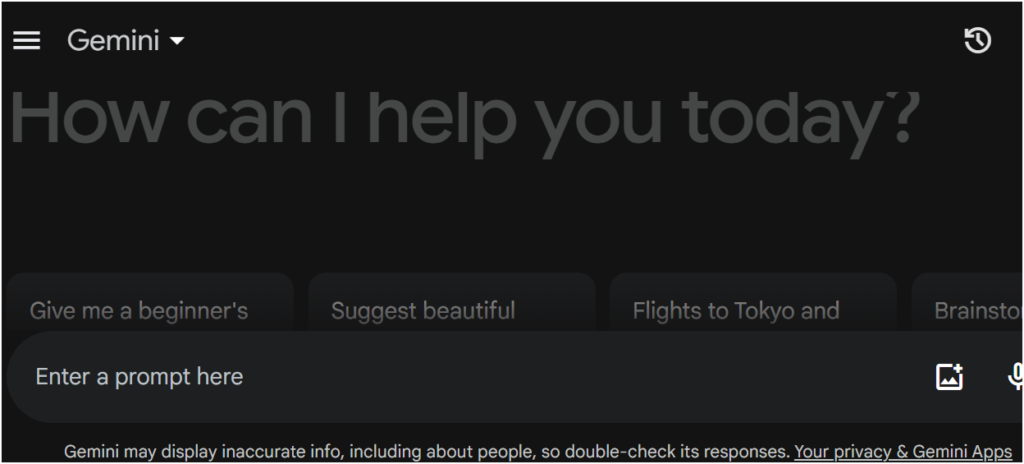As an AI assistant created by Anthropic to be helpful, harmless, and honest, Perplexity has become quite popular for its natural conversational abilities. However, like any technology, Perplexity isn’t perfect and may not meet everyone’s needs.
If you’re looking for a perplexity ai alternative virtual assistant with its own unique strengths, here are 15 of the best options that offer similar language processing capabilities.
List of 15 Best Perplexity Alternatives
- 1. ChatGPT
- 2. HuggingChat
- 3. Google Gemini
- 4. Open Assistant.io
- 5. Poe
- 6. GitHub Copilot
- 7. Pi
- 8. Writesonic
- 9. Komo
- 10. Jasper
- 11. Bing AI
- 12. Neeva
- 13. YouChat
- 14. Chatsonic
- 15. Claude 2
These alternatives offer a range of features, such as AI chatbots, large language model (LLM) tools, online and self. hosted options, and more. Some of these alternatives are free, while others are proprietary or freemium. Some of the alternatives are integrated with search engines, while others offer fully customizable AI experiences.
Overall, these Perplexity AI alternatives provide a variety of options for developers and users looking for language processing tools.
Let’s dive right in.
Disclaimer: Before taking any paid subscription check each website carefully.
1. ChatGPT:

Features: Natural language understanding, context preservation, grounded conversations.
Limitations: No access to external info, the potential for unsafe responses, black box system.
Pricing: Free tier through Anthropic website, pricing unknown if commercialized.
Reviews: Widely praised for conversational skills but safety/bias concerns remain
2. HuggingChat:
Features: Open-domain chatting, learned from Twitter data, sense of humor.
Limitations: Limited training data, unpredictable responses, and no access restrictions.
Pricing: Free and open source on GitHub.
Reviews: Engaging conversations but risky responses raise surveillance/misuse concerns.
Rating: 2/5 stars.
3. Google Gemini:

Features: Advanced NLP capabilities, rich responses from knowledge bases.
Limitations: A closed system and limited publishing make capabilities unclear.
Pricing: Entirely Free.
Reviews: Pending
Prospective Rating: 4/5 stars.
4. OpenAssistant.io:
Features: Open API, integration tools, customizable models.
Limitations: Requires coding skills, less user-friendly than closed apps.
Pricing: Freemium model, pricing tiers based on usage.
Reviews: Well-reviewed platform for custom AI building but more technical.
Overall Rating: 4/5 stars.
5. Poe:
Features: Writing assistance, editing help, stream-of-consciousness companion.
Limitations: Weak responses outside the writing domain, and organizational issues.
Pricing: Freemium with paid tiers starting at $5/month.
Reviews: Useful creative tool but customer service complaints.
Average Rating: 4/5 stars
6. GitHub Copilot:
Features: AI pair programmer, code completion using GPT.3.
Limitations: Training limited to code samples, potential for bugs or unsafe edits.
Pricing: $15/mo for personal use, tiered enterprise plans up to $40/month.
Reviews: Early praise for coding skills but concerns over data use and errors.
Average Rating: 4/5 stars.
More to explore.
7. Pi:
Features: Versatile database, CLI interface, predictive responses.
Limitations: Technical skills required, not focused on conversation.
Pricing: Open source and self-hosted, hardware kits starting at $60.
Reviews: Powerful tool appealing to makers but a steep learning curve.
Overall Rating: 3.5/5 stars.
8. Writesonic:
Features: Similar to Poe focused on writing/editing assistance.
Limitations: Limited conversational abilities, weak domain outside writing.
Pricing: Freemium starting at $10/mo with discounts for annual plans.
Reviews: Praised for editing help but customer service issues were raised.
Overall Rating: 3/5 stars
9. Komo:
Features: Built for productivity, and to-do management using natural language.
Limitations: Narrow scope limits open-ended conversation.
Pricing: Free and open source download, paid enterprise tiers starting at $99/month.
Reviews: Very positive for task automation use cases from business users.
Overall Rating: 4.5/5 stars
10. Jasper:
Features: Open source conversational agent platform, node.js based.
Limitations: Requires technical skills, and more research tools than a consumer product.
Pricing: Free to use and modify under an MIT license.
Reviews: Excellent for customizable education/research but less user-friendly.
Overall Rating: 3.5/5 stars.
11. Bing AI Assistant:
Features: Integration into Bing search, uses MS language models like GPT.3 equivalent.
Limitations: Limited to basic Q&A and fact-checking, closed platform controls.
Pricing: Free to use through Bing search, likely priced for commercial use.
Reviews: Reputable but narrow scope and closed access curb advantages.
Overall Rating: 3.5/5 stars.
12. Neeva:
Features: AI-powered search aimed to replace Google, claims privacy respect.
Limitations: Early beta limits features/ scoping, and competitive search landscape.
Pricing: Free private beta, unknown post-launch consumer pricing.
Reviews: Promising vision from former Google executives but an unproven product.
Hypothetical Rating: 4/5 stars for now.
13. YouChat:
Features: Chatbot building without coding on an open framework.
Limitations: Creations remain closed source, limited by included templates/models.
Pricing: Freemium starting at $49/mo growing by complexity.
Reviews: Mixed reception for ease versus capability versus ecosystem lock-in.
Overall Rating: 3.5 stars.
14. Chatsonic:
Features: Automated marketing/sales chatbots customizable without coding.
Limitations: Narrow scope limits open-mindedness, and risks becoming purely commercial.
Pricing: Freemium starting at $50/mo growing based on usage.
Reviews: Focused tool receives positive reviews from businesses for lead gen bots.
Overall Rating: 4 stars.
15. Claude 2:
Features: Customer support via natural language, deployed on websites/apps/devices.
Limitations: More functional than conversational, not meant for open discussion.
Pricing: Freemium starting at $800/mo scaling by usage, generous trial available.
Reviews: Highly rated by businesses for cost.effective quality customer service bot.
Average Rating: 4.5/5 stars
Bonus: 5 of the top options worth considering
Anthropic Assistant:
- One of the most direct competitors to Perplexity is Anthropic Assistant, the AI behind it.
- With Anthropic focusing specifically on safety research, Anthropic Assistant aims to uphold similar conversational standards while integrating new technologies like Constitutional AI to avoid harmful, toxic, or deceptive language.
- Pricing is undisclosed but like Perplexity it may be available for research/non-commercial use.
- Reviews praise its conversational talent but note some responses still come across as robotic.
Alexa:
- Amazon’s Alexa is ubiquitous, powering tens of millions of Echo devices worldwide.
- It excels at voice interactions and has thousands of compatible smart home skills.
- However, its conversations are more limited since Alexa focuses on completing tasks versus natural back-and-forth discussion.
- Pricing depends on which Echo device you purchase (starting around $30) and its commercial licensing makes it unsuitable for some businesses.
- Users appreciate Alexa’s wide capabilities and integration but some find responses too simple or lack personality.
Claude:
- Anthropic’s other commercial option is Claude, which focuses more on customer support than open-ended conversation.
- Claude is designed for deployment as a virtual agent across websites and apps.
- It can access customer records to provide personalized assistance.
- However, its scope may be too narrow for open conversation needs.
- Pricing starts at $5,000/year for the basic plan but scales based on usage, with discounts available.
- Claude receives praise for its customer-centric responses tailored to domains like e-commerce and healthcare.
Anthropic Helper:
- For hobbyists and researchers, Anthropic offers its open-sourced Anthropic Helper model at no cost.
- It has similar conversation abilities to Perplexity but without as much fine-tuning for safety and robustness. Some capabilities are also restricted due to its research focus.
- The trade-off is it provides a completely free and flexible AI option, though support is more limited.
- Reviews acknowledge Anthropic Helper as an impressive conversational agent given its accessibility but note it can provide unpredictable responses at times.
AI Assistant:
- Anthropic competitor Anthropic built their own commercial conversational AI called AI Assistant designed for deployment across applications and devices.
- It aims to have natural dialogue abilities plus functionality like face recognition and even robotic control.
- However, as a newer product, its capabilities haven’t been publicly demonstrated to the same extent as Anthropic’s models.
- Pricing plans start around $2,000/month and would depend heavily on intended use cases and deployment size.
- Early reviews have high hopes for its combination of technologies but lack of public reviews makes capabilities difficult to independently verify so far.
Final Thoughts
In summary, while no option is a perfect ‘one size fits all’ replacement for Perplexity, these top alternatives each offer their own blend of features, limitations, pricing models, and reviews that may be preferable depending on individual and organizational needs.
With advances happening quickly in AI safety research, the virtual assistants that lead in areas like Constitutional AI today may change over time, so it’s good to periodically re-evaluate which option aligns best with your priorities.
Let me know if any other details would be helpful as you consider which platform is the right fit for your use case







